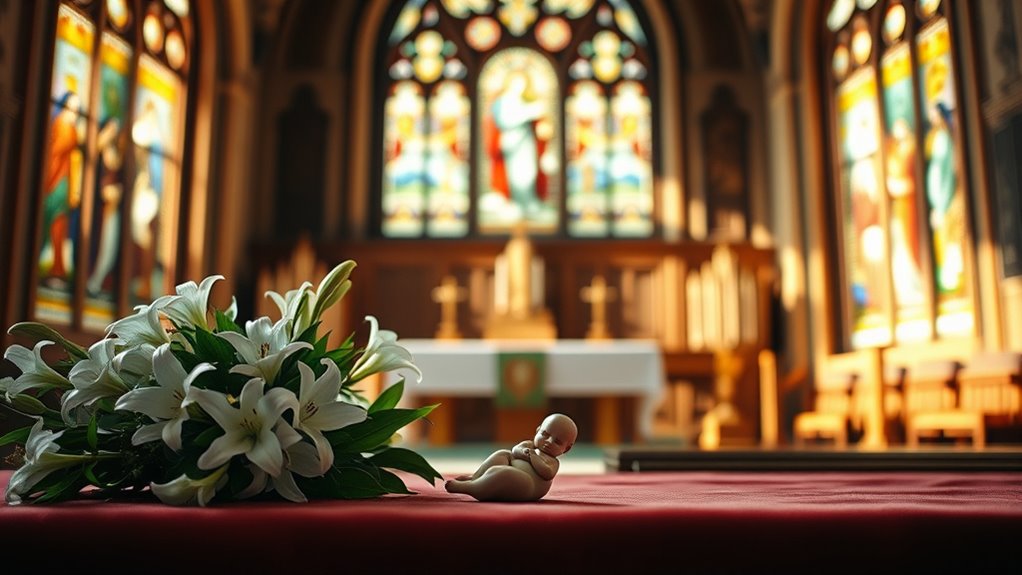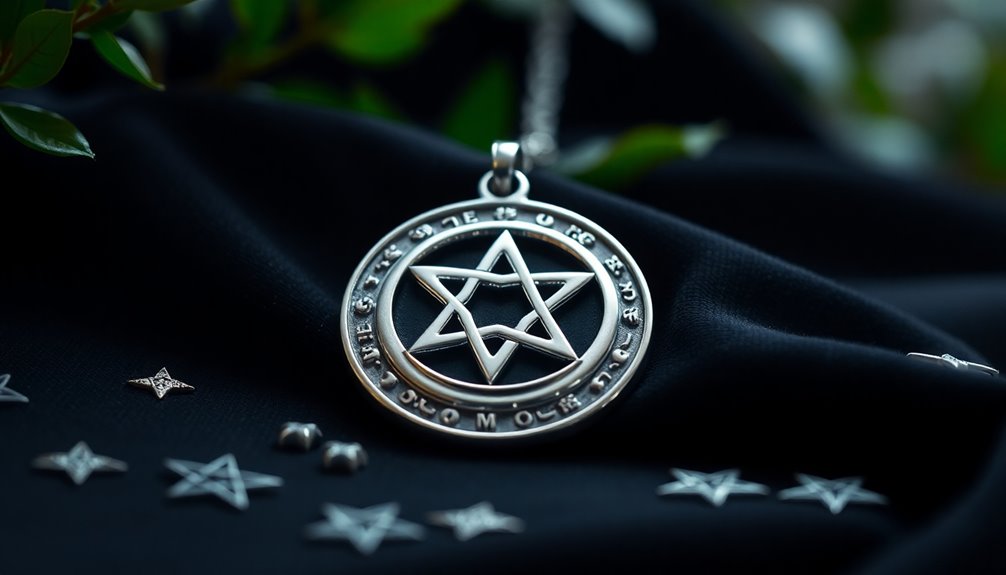The Christian view sees human life as sacred from conception, created by God with purpose and dignity. The Bible emphasizes that humans are made in God’s image, and scriptures like Psalm 139 show God’s involvement in forming life in the womb. Many Christians believe life begins at fertilization, making abortion morally wrong. Understanding these biblical and theological principles reveals why Christians advocate for the protection of the unborn, and if you keep exploring, you’ll discover even more about this profound perspective.
Key Takeaways
- Christians believe human life is sacred from conception, created by God with divine purpose and dignity.
- The Bible affirms that life begins at conception, emphasizing God’s deliberate act in forming each individual.
- Christian teachings generally oppose abortion, viewing it as a violation of God’s sacred design for life.
- Compassion and mercy are central to the Christian response, focusing on support and reconciliation for women and families.
- Faith-based advocacy emphasizes defending the unborn as divine reflections of God’s image, promoting moral responsibility.
Biblical Foundations for the Value of Life
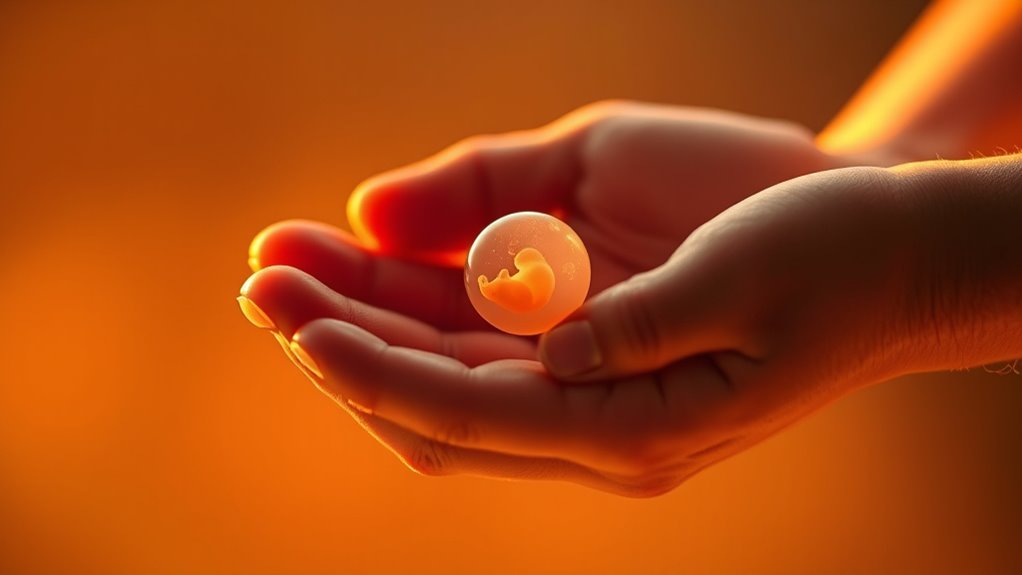
The Bible consistently affirms the sacredness of human life, emphasizing that it is created by God with purpose and dignity. From an eternal perspective, every life holds divine significance beyond this world, reinforcing that taking innocent life contradicts God’s plan. When faced with moral dilemmas, scripture guides believers to honor life as a sacred gift, urging compassion and respect. The biblical view underscores that human life is not accidental but intentionally woven by God’s hands. Recognizing this divine origin helps you see each person as valuable, regardless of circumstances. This foundation compels believers to defend life, affirming its inherent worth rooted in God’s design and eternal purpose. Ultimately, scripture challenges you to uphold the sanctity of life in every moral decision.
The Imago Dei: Humans Created in God’s Image

Understanding the biblical foundation of human dignity begins with recognizing that humans are created in God’s image. This truth affirms that every person holds inherent worth, shaping your view on moral dilemmas and ethical considerations surrounding life. When you see others as reflections of God’s nature, it becomes clear why life should be protected and respected. Recognizing the imago Dei emphasizes that human life is sacred at every stage and underscores the importance of defending human rights. Additionally, the Shower – Best Modern Toilet can serve as a metaphor for purity and renewal, highlighting the importance of respecting and valuing human life from conception to natural death. The influence of sustainable materials in modern products reminds us of the responsibility to care for creation and human dignity alike. Moreover, understanding how WWE Raw’s Financial Impact contributes significantly to the global entertainment industry can deepen our appreciation for the value and influence of human creativity. Cultivating awareness of relationships and the importance of empathy further reinforces the sacredness of each individual.
Life Begins at Conception: Scriptural Perspectives
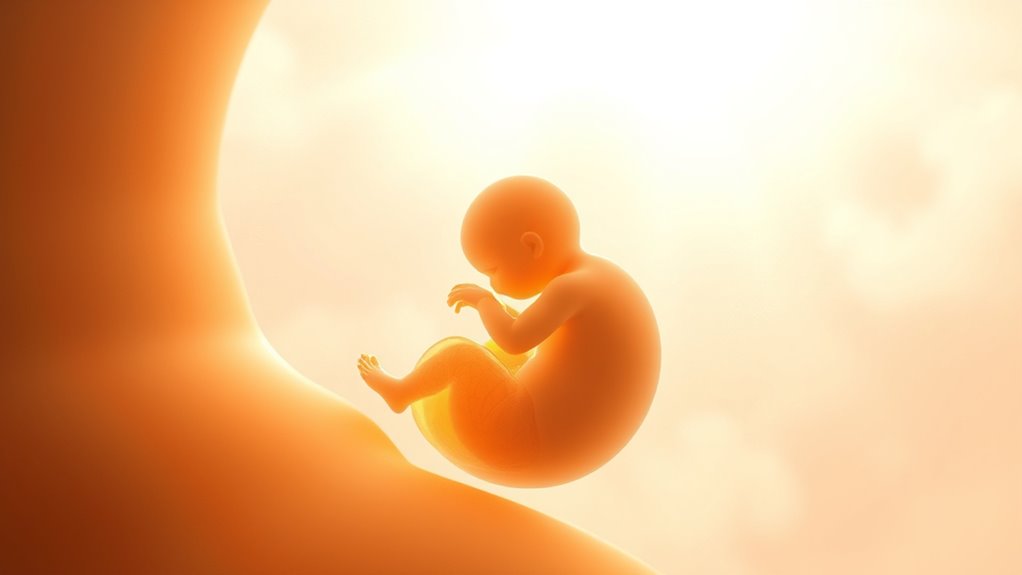
The Bible offers clear references to life in the womb and God’s creative power from conception. You’ll see that scripture emphasizes the significance of embryonic life and God’s active role in forming us. These perspectives reinforce the belief that life begins at conception, shaping how Christians view abortion. Additionally, the concept of Self Watering Plant Pots illustrates the importance of providing consistent care and nurturing, similar to the biblical call for protecting and valuing life at all stages.
Biblical Embryonic References
Scriptural references often point to the belief that life begins at conception, shaping the Christian view on abortion. These verses highlight the importance of embryonic development and the sanctity of early life. For example, Psalm 139:13-16 describes God’s involvement in forming you in the womb, emphasizing life’s divine origin from conception. This perspective affirms that life is sacred from the moment of fertilization, impacting debates on stem cell research and embryonic rights. You’re encouraged to contemplate how scripture affirms the value of life at its earliest stages. Key points include:
- The Bible’s depiction of God’s role in forming life during embryonic development
- The implication that life’s sanctity is established early in the womb
- The Christian stance against using embryos for stem cell research
- Recognizing the natural process of embryonic growth as part of God’s creation.
Furthermore, understanding the embryonic development stages can deepen appreciation for the complexity and divine design of early life. It is essential to acknowledge that these stages reflect a deliberate and intricate process, highlighting the divine design behind all living creation. Additionally, recognizing the biological intricacy involved in embryogenesis reinforces the notion of life’s sacredness from conception.
God’s Creative Power
God’s creative power is vividly demonstrated in the Bible’s descriptions of life’s origin, affirming that life begins at conception through divine intention. As the ultimate Artist, God forms each life intentionally, showcasing His artistic expression in creating humans in His image. This act underscores the sacredness of every life, emphasizing that life is a divine gift from the very start. Recognizing God’s power in creation also ties into environmental stewardship, where caring for life reflects honoring His creative work. When you appreciate that life begins at conception through God’s divine plan, it deepens your respect for all human life and the environment. The presence of soulmate angel numbers in spiritual guidance highlights the significance of divine timing and purpose in the unfolding of life’s journey. This understanding affirms that life’s inception is not accidental but a deliberate act of God’s divine creative power.
Life in the Womb
Recognizing God’s creative power highlights the sacredness of every human life, especially from the moment of conception. Scripture affirms that life begins at conception, emphasizing God’s involvement in forming each person. Medical advancements now confirm that life in the womb is a unique, developing human being with individual DNA. Prehistoric seed utilization Evidence from ancient communities shows that seeds like chia have been vital for sustenance and survival, underscoring how early humans recognized the importance of preserving life through nourishment. Coastal Foraging cultural perspectives vary, but many cultures acknowledge the embryo’s growing significance. Additionally, scientific research on embryonic development supports the understanding that life is present from the earliest stages, reinforcing the biblical view of life’s sanctity. The use of advanced medical imaging techniques further substantiates the presence of a distinct human life from conception onward. Scientific studies also reveal that the embryo’s heartbeat can be detected very early, confirming the emergence of life at a very young stage. Discover how scientific progress reinforces scriptural teachings about life’s sanctity. Explore how different cultures view the embryo’s moral status. Understand why Christians believe life in the womb deserves protection from conception forward.
Theological Arguments Against Abortion

You’re called to recognize the sanctity of human life as sacred and precious in God’s eyes. The belief that souls are divinely created reinforces the moral obligation to protect life from conception onward. This theological view emphasizes that ending a pregnancy contradicts God’s divine plan and moral responsibility. Recognizing the importance of spiritual principles underscores the moral imperative to uphold life at all stages. Moreover, understanding the best arcade machines for home game rooms and their features reflects the value placed on preserving joy and life-enhancing experiences, aligning with the broader moral perspective that life should be celebrated and protected. Wisdom from ancient traditions reminds us that truth and integrity are fundamental in honoring the divine gift of life. An awareness of cultural intelligence can also deepen our understanding of diverse perspectives on life and morality, fostering empathy and respect in moral debates.
Sanctity of Human Life
The theological foundation against abortion centers on the belief that human life is sacred from the moment of conception. You must recognize that this view influences both medical ethics and legal considerations, emphasizing respect for life at every stage. It asserts that life’s sanctity is rooted in divine creation, making abortion morally unacceptable. Respecting life aligns with the commitment to protect the vulnerable, including unborn children. These beliefs shape laws and medical practices, guiding professionals to prioritize the preservation of life. Understanding this core principle helps you grasp why many Christians oppose abortion, seeing it as an infringement on divine authority and human dignity from conception onward. This perspective underscores the importance of defending life in all legal and ethical contexts. Additionally, resources and tools such as legal frameworks and community support systems play a crucial role in upholding the sanctity of life and guiding ethical decision-making. Recognizing the moral implications involved can deepen your appreciation for the reasons behind these convictions. The use of high contrast ratios in imaging symbolize the contrast between life and death, emphasizing the sacredness of human life from its earliest moments.
Divine Creation of Souls
The belief in the divine origin of human life extends beyond just physical existence; it also encompasses the soul. Christian doctrine asserts that each soul is uniquely created by divine intervention, emphasizing God’s direct role in soul formation. This divine creation signifies that life isn’t accidental but purposeful, involving soul evolution guided by God’s intent. Recognizing that souls are infused by divine intervention reinforces the sanctity of every human life from conception.
| Aspect | Explanation |
|---|---|
| Divine Intervention | God personally creates each soul at conception. |
| Soul Evolution | Souls develop spiritually through divine guidance. |
| Moral Implication | Destroying a fetus interrupts divine plans for the soul. |
This understanding underscores why abortion is viewed as a violation of God’s sacred design.
Moral Obligation to Protect
Given the belief that human life is a sacred gift from God, Christians have a moral obligation to protect the unborn, recognizing that each life reflects God’s divine image and purpose. This responsibility extends beyond personal conviction, influencing legal implications and medical ethics. You are called to advocate for laws that defend life and ensure ethical medical practices that prioritize the dignity of the unborn. Ignoring this duty risks devaluing human life and compromising moral standards. Consider these key points:
- Upholding laws that protect the vulnerable aligns with divine commandments.
- Medical ethics emphasize preserving life at all stages, respecting God’s creation.
- Your actions can shape societal attitudes towards respect and compassion for the unborn.
The Importance of Mercy and Compassion in Christian Teaching
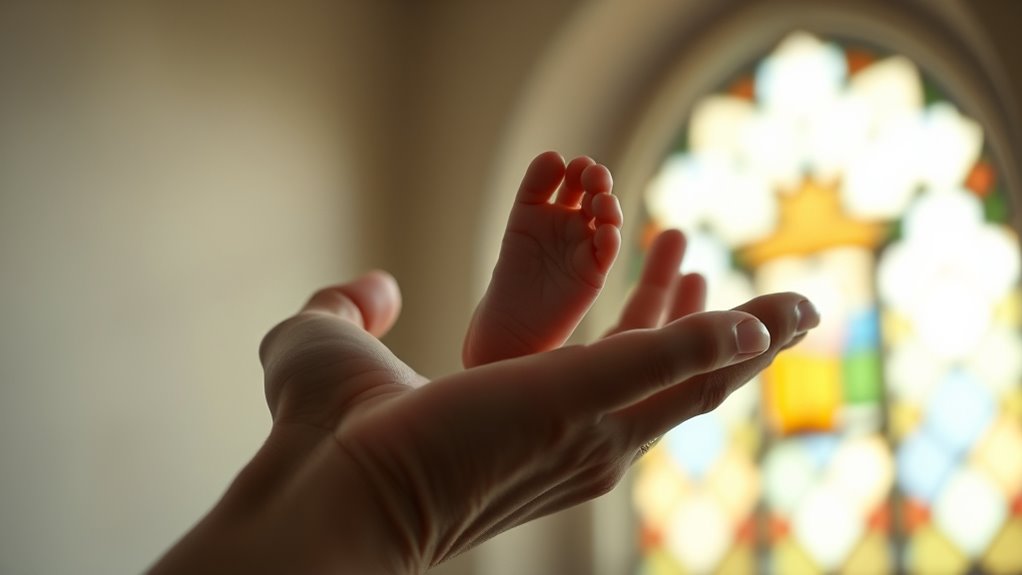
Because mercy and compassion lie at the heart of Christian teaching, they serve as fundamental guiding principles when addressing difficult issues like abortion. You are encouraged to practice mercy and forgiveness, recognizing that everyone makes mistakes and faces struggles. Compassion in action means showing understanding and kindness rather than judgment or condemnation. When you approach others with empathy, you reflect Christ’s love and create space for healing. This doesn’t mean ignoring moral truths but rather embracing a gentle, caring attitude that upholds human dignity. By embodying mercy and compassion, you demonstrate the true essence of Christian love—helping others through their pain and guiding them toward grace and forgiveness. This approach fosters reconciliation and underscores the importance of loving your neighbor, even amid complex moral dilemmas.
Historical Christian Positions on Abortion

Throughout Christian history, attitudes toward abortion have varied, reflecting evolving theological interpretations and cultural influences. Early Christian writings often emphasize the sanctity of life, citing the belief that life begins at conception. Historical church doctrines generally condemn abortion, viewing it as morally wrong, though some debates existed in different eras. You’ll find that early Christian writers like Tertullian and Augustine strongly opposed abortion, framing it as a violation of divine law. Over time, these teachings became more codified, reinforcing the church’s stance on the sanctity of every human life. The core message from these early sources remains consistent: life is sacred from conception, and abortion is considered a serious sin. Understanding this historical context helps you appreciate how foundational these doctrines are to modern Christian ethics.
Contemporary Christian Responses and Debates

Contemporary Christian responses to abortion reflect a mix of reaffirming traditional teachings and engaging in ongoing ethical debates. Clergy perspectives vary, with some emphasizing the sanctity of life and others advocating for compassion in complex situations. Modern activism among Christian groups often focuses on both defending unborn life and supporting women facing unplanned pregnancies. These debates are shaped by societal changes, legal shifts, and evolving ethical considerations. Many churches participate in public discourse, balancing doctrinal beliefs with pastoral care. Here’s a snapshot of different perspectives:
| Perspective | Focus | Approach |
|---|---|---|
| Traditionalist | Sanctity of life | Oppose abortion outright |
| Progressive | Compassion and choice | Support reproductive rights |
| Clergy insights | Ethical and pastoral concerns | Engage in dialogue |
| Modern activism | Advocacy and social justice | Mobilize for change |
Moral Implications of Protecting Unborn Life
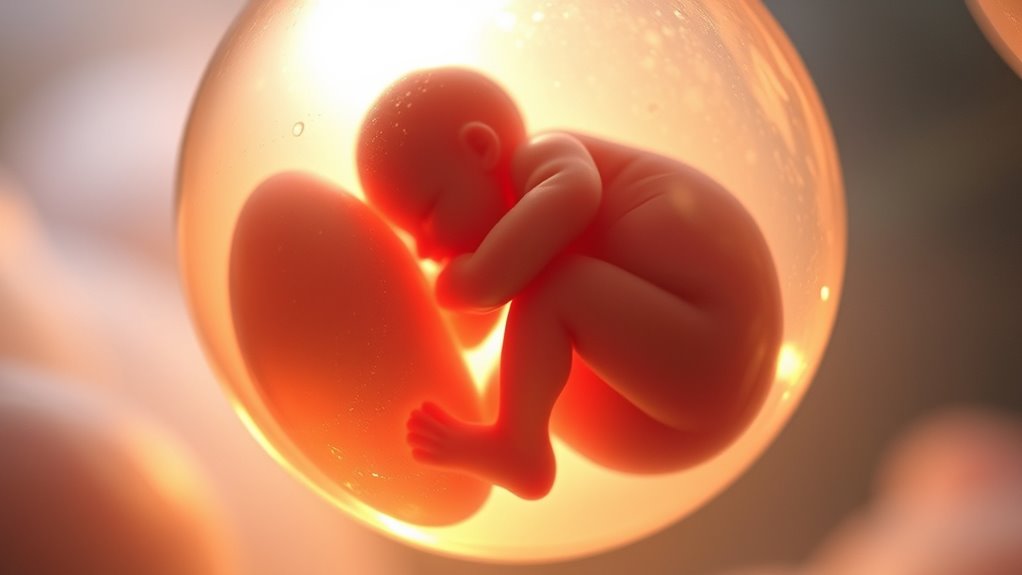
The moral implications of protecting unborn life challenge you and your community to confront profound ethical dilemmas. You may grapple with questions like when life begins and the rights owed to the unborn. Protecting life can lead to societal impacts, shaping laws and cultural norms around morality and human dignity.
- Balancing rights of the mother with the rights of the fetus
- Steering societal views that may oppose or support pro-life principles
- Considering the long-term consequences of legal and moral protections for unborn life
These issues force you to evaluate your values and how they influence policy and community standards. Ultimately, protecting unborn life involves weighing complex ethical dilemmas that affect individuals and society at large.
How Faith Influences Christian Advocacy and Support

Faith profoundly shapes how Christians advocate for and support the sanctity of life. Your beliefs inspire you to engage in faith-based activism, where compassion and moral conviction drive efforts to protect unborn life. You may participate in community outreach, prayer vigils, or advocacy campaigns grounded in biblical principles. Spiritual support plays a crucial role, offering encouragement and hope to women facing difficult decisions, emphasizing compassion over judgment. Your faith motivates you to stand firm against abortion by emphasizing the value of every life as part of God’s creation. This conviction influences your actions, fostering a sense of purpose and unity among believers committed to defending life. Ultimately, faith guides your advocacy, reminding you of the divine importance of protecting the most vulnerable.
Frequently Asked Questions
How Do Different Christian Denominations Interpret the Sanctity of Life?
You might notice that different Christian denominations interpret the sanctity of life through various biblical interpretations and doctrinal differences. Some, like Catholics, believe life begins at conception and oppose abortion entirely. Others, like many Protestant groups, emphasize individual conscience and may allow for exceptions. These variations reflect how each denomination’s understanding of scripture shapes their views on the moral importance of protecting life at all stages.
What Role Does Prayer Play in Pro-Life Activism?
You see prayer as a crucial part of pro-life activism, helping you stay focused and motivated. Through prayer, you seek guidance and strength to advocate effectively and compassionately. It also connects you with your faith, reminding you of the importance of life at every stage. Prayer fuels your passion and provides reassurance, making your activism more meaningful and rooted in spiritual conviction.
Are There Exceptions to the Christian Stance Against Abortion?
You wonder if there are exceptions to the Christian stance against abortion. In moral dilemmas and theological debates, some argue for exceptions in cases like rape, incest, or to save the mother’s life. Others hold a firm position that life begins at conception, leaving no room for exceptions. Ultimately, it’s a complex issue that reflects deep convictions and ongoing discussions within faith communities.
How Do Christian Teachings Address Cases of Rape or Incest?
When faced with cases of rape or incest, Christian teachings emphasize compassionate responses while acknowledging ethical dilemmas. You’re encouraged to show empathy for the affected individuals, but the core belief in the sanctity of life remains. Many Christians pray and seek guidance, understanding that such situations are complex. Ultimately, they balance compassion with their conviction that every life, regardless of circumstances, holds inherent value.
What Support Systems Exist for Women Facing Unplanned Pregnancies?
If you’re facing an unplanned pregnancy, you’re not alone. Many support systems, like counseling services, offer emotional guidance and practical advice to help you through tough decisions. Adoption options are also available if you decide that’s best for your baby. These resources aim to support your well-being and empower you to make the choice that feels right for you, ensuring you receive compassionate care every step of the way.
Conclusion
As you reflect on the Christian view of abortion, remember that your faith calls you to see every life as a precious spark of God’s divine image. Like a lighthouse guiding ships safely home, your compassion and conviction can lead others toward hope and mercy. Embracing this sacred truth invites you to stand for the unborn, shining a light in darkness and affirming the profound value of every life God has lovingly created.

